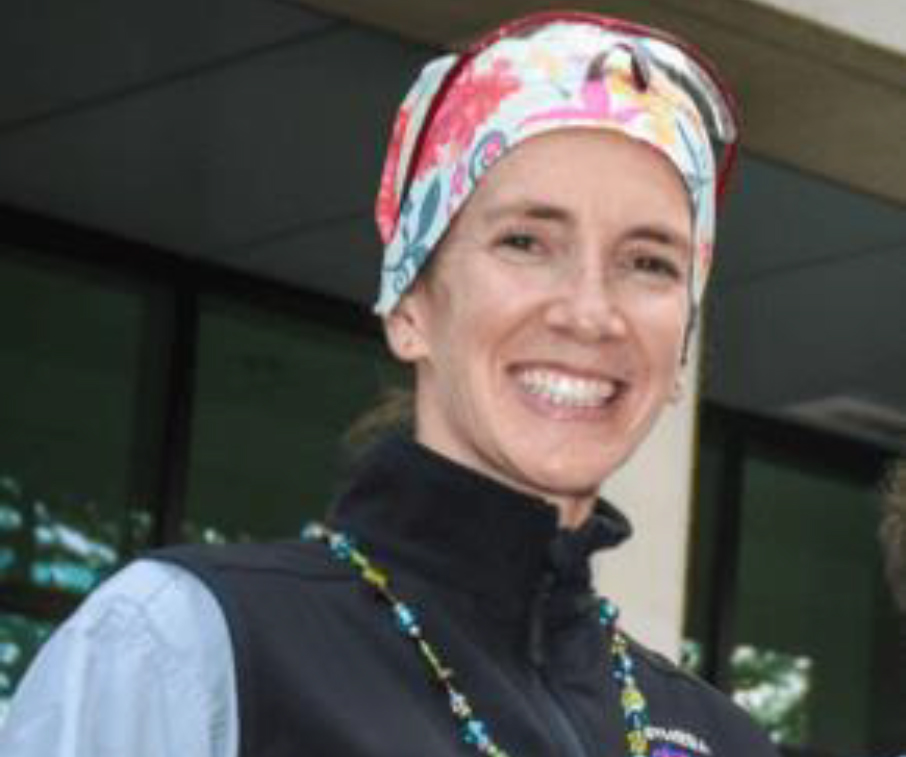Photo: Dr. Andrew Shih (Left) and Dr. Jacqueline Trudeau (Right)
Sometimes, the smallest changes can lead to significant outcomes.
 When Drs. Jacqueline Trudeau and Andrew Shih decided to investigate the impact of reducing preoperative group and screens (GRS) for their Physician Led Quality Improvement (PLQI) project, they wanted to help ease the burden placed on patients, but also on the healthcare system as a whole.
When Drs. Jacqueline Trudeau and Andrew Shih decided to investigate the impact of reducing preoperative group and screens (GRS) for their Physician Led Quality Improvement (PLQI) project, they wanted to help ease the burden placed on patients, but also on the healthcare system as a whole.

Andrew, Medical Director and Regional Medical Leader of Transfusion Medicine at Vancouver Coastal Health, explains that their GRS reduction project, to some extent, was born out of the pandemic.
“Most preoperative consultations have been happening virtually due to COVID-19," says Andrew. “However, since the preoperative GRS still needs to be done at the site where the surgery happens, many patients were having to travel long distances, just to get their bloodwork done."
They developed a dashboard tool linking surgical procedures to transfusion rates, to demonstrate that if a patient's bleeding risk was low enough (less than two percent), then the likelihood of requiring a transfusion was also very low, meaning a 'routine' GRS prior wasn't needed prior surgery.
PLQI program advisors Emma Pienaar and Allison Chiu were instrumental in the development of the dashboard tool.
The dashboard was originally born out of a proof-of-concept spreadsheet which Jacqueline herself painstakingly developed, by linking the datasets and applying the concept of minimizing unnecessary GRSs in orthopedic surgeries.
“The goal is to produce a set of shared guidelines based on our local transfusion data," says Andrew. “This will hopefully help surgeons and anesthesiologists decide which patients require a GRS, and which do not."
Not only will patients and physicians be able to save their time and resources, but also, the environmental impact will be greatly reduced as a result.
“There are some key environmental benefits that we are hoping to highlight, from the reduction in carbon emissions resulting from less travel, to the decrease in medical supplies used," says Andrew.
By collaborating with the UBC Planetary Healthcare Lab, they're now expanding the date in the dashboard tool such as the distance a patient travels to obtain their GRS, to determine the environmental impact.
Based on roughly 15 percent of surgeries at UBC Hospital and Vancouver General Hospital (VGH) from 2016 and 2021, the team concluded that patients travelled approximately 571, 593 km for unnecessary GRSs – this equates to an estimated 195.8 tonnes of carbon emissions.
Andrew says the project also highlights inequities within the healthcare system, particularly for those living in smaller, rural and/or remote communities.
“For patients needing to travel to an urban centre for their GRS, this often also means taking one or more days off from work, just to get a blood test done," says Andrew. “So we're hoping to make it possible for these patients to have their initial GRS done where they live, to help lower the burden placed on them."
Traditionally, testing took place at the operating centre to ensure the right patient received the right blood. The team is working with blood banks across the province for testing closer to home. They're developing unique approaches to safely share results for identified peri-operative patients with the operating centres, to help them prepare properly-matched blood.
The team believes collaborating across health authorities will both help reduce the significant time and financial burden for patients in rural areas, and will provide a more welcoming and patient-centered approach.
“Some people living in remote communities, including Indigenous communities, may not feel entirely comfortable accessing care in larger centers, and are often more open to, and accepting of, care provided in their local community," says Andrew.
Andrew and Jacqueline are just two of many health professionals in B.C. and elsewhere working to reduce unnecessary testing for the benefit of patients, the healthcare system, and overall planetary health.

